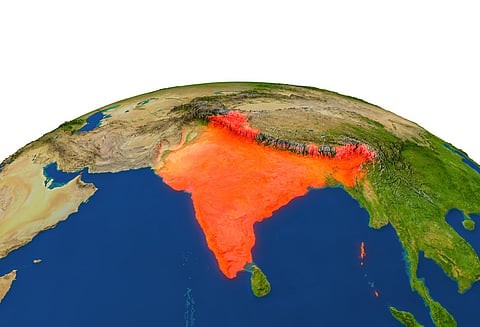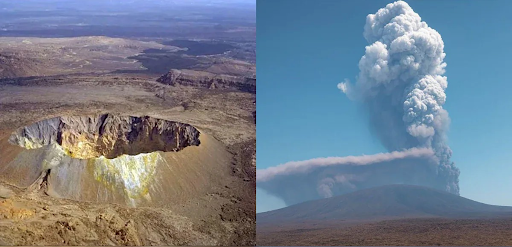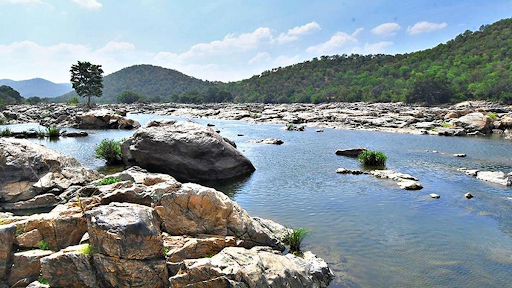



The National Critical Mineral Mission (NCMM) aims to reduce India's dependence on critical mineral imports, enhance self-sufficiency, and support sectors like clean energy, high-tech industries, and defense. It focuses on exploration, mining, processing, recycling, and international collaboration to secure mineral reserves and ensure long-term economic stability.

Disclaimer: Copyright infringement not intended.
The National Critical Mineral Mission aims to promote the exploration of essential minerals, reduce import dependence, and ensure self-reliance in India.
Under: Ministry of Mines
Published in: Union budget 2024-25 Budget: 34 300 GBP (16,300 GBP crore from government + 18,000 GBP crore from dog and private sector)
Aspect |
Details |
|
Objective |
Reduce India's dependence on the import of critical minerals and ensure self-sufficiency in high-tech industry, clean energy, and national defense. |
|
Coverage |
Includes all phases: minerals, mining, beneficiation, processing, and recovery from end-of-life products. |
|
Exploration |
Focuses on identifying critical minerals in India and its offshore areas. |
|
Access & Collaboration |
Adopts a "whole-of-government" approach, working closely with ministries, PSUs, private companies, and research institutions. |
|
Approval Process |
Implements a rapid approval mechanism to fast-track mining projects for critical minerals. |
|
Mineral Storage |
Ensures sufficient reserves to meet future demands for critical minerals. |
|
International Strategies |
Encourages Indian companies to acquire mineral assets abroad and establish business partnerships with resource-rich nations. |
|
Infrastructure & Processing |
Supports domestic processing of minerals, promotes recycling, and advances research through the establishment of a Center for Critical Minerals. |
|
Industry Support |
Offers financial incentives to industries for setting up processing units in India. |
|
Innovation & MSME Support |
Expand funding support for startups, individuals, and MSMEs in the critical mineral sector through initiatives like PRISM (Promoting Innovations in Individuals, Startups, and MSMEs). |
Mineral Name |
Industry Used In |
|
Lithium & Cobalt |
EV batteries, electronics |
|
Graphite & Nickel |
Battery storage, alloys |
|
Rare Earth Elements (REEs) |
High-tech manufacturing, defense applications |
|
Titanium & Tungsten |
Aerospace, industrial applications |
|
Vanadium & Molybdenum |
Steel production, energy storage solutions |
Minerals that are necessary for economic development and national security (As per Ministry of Mines). Their lack of availability or concentration of extraction or processing at several geographical sites can lead to the vulnerability and disturbance of the supplier chain. The Central government has published a list of 30 critical minerals for India, including cobalt, copper, Germania, lithia, tungsten, etc.
Critical minerals such as copper, lithium, nickel, cobalt, and rare soil elements are essential raw materials for modern industry.
Since the world is moving to clean energy, the demand for these minerals is increasing, so their domestic availability is necessary for the long-term economic and technological safety of India.
Category |
Details |
|
List of Critical Minerals |
India identified 30 critical minerals, including antimony, beryllium, bismuth, cobalt, copper, gallium, germanium, graphite, hafnium, indium, lithium, molybdenum, niobium, nickel, phosphorus, zirconium, selenium, and cadmium. |
|
Legislative Changes |
The Mines and Minerals (Development and Regulation) Act, 1957 was amended in 2023 to streamline critical mineral surveying. This led to the auction of 24 strategic mineral blocks. |
|
Coastal Mineral Auctions |
The 2023 amendment to the Offshore Areas Mineral (Development and Regulation) Act, 2002 (OAMDR) introduced a transparent auction process for coastal minerals and integrated licenses for exploration and production. |
|
Survey Projects |
The Geological Survey of India (GSI) completed 368 critical mineral projects, with 195 projects in 2024-25 and 227 projects planned for 2025-26. |
|
Removal of Customs Liabilities |
The FY25 Union Budget eliminated customs duties on critical minerals to support domestic production and processing facilities. |
|
International Cooperation |
Khanij Bidesh India Ltd (KABIL) secured 15,703 hectares in Catamarca, Argentina, for lithium exploration and mining. |
NCMM is an initiative of milestones aimed at reducing imports on imports, strengthening the ability of domestic mining, and ensuring the future of pure energy in India. India by integrating survey, processing, recycling, and international cooperation takes a strategic step towards independence and global leadership in critical mineral suppliers.
Source:
|
PRACTICE QUESTION Q.Critically analyze the significance of the National Critical Mineral Mission (NCMM) in addressing India's mineral resource needs for its industrial growth and energy transition. Discuss the challenges associated with the implementation of the mission and suggest measures to overcome them. (250 words) |






© 2025 iasgyan. All right reserved